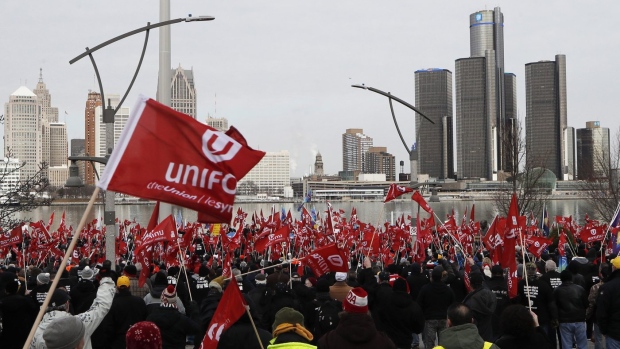Air Canada is slashing six major routes out of Calgary this winter, in part due to an industry-wide pilot shortage that the carrier says threatens its "overall operational stability."
The country's biggest airline confirmed Wednesday it will no longer offer non-stop flights from Calgary to Ottawa, Halifax, Los Angeles, Honolulu, Cancun, or Frankfurt as of the end of October due to ongoing fleet and crew constraints.
"The industry-wide shortage of regional pilots is expected to have a prolonged impact on Air Canada’s regional network," said Air Canada spokesman Peter Fitzpatrick in an email.
"This has resulted in resource pressures as Air Canada has been required to operate certain routes with mainline aircraft that are normally served by its main regional partner."
Fitzpatrick added the Montreal-based airline is also facing pressure due to supply chain challenges that are making it more difficult for the airline to obtain parts and complete airplane maintenance on time.
"This has led to a review of the network schedule to ensure resources are deployed most efficiently and productively against these current, ongoing industry considerations," Fitzpatrick said.
A pilot shortage has been brewing across the continent for several years due to a variety of factors including an aging workforce and the rapid proliferation of new discount airlines that are putting pressure on the labour supply.
The COVID-19 pandemic exacerbated airlines' already existing labour challenges, delaying and disrupting pilot training across the country while also driving experienced pilots to exit the industry in favour of more job stability elsewhere.
International consultancy firm Oliver Wyman has estimated that the North American aviation industry could be short 30,000 pilots by 2032 if nothing changes.
Air Canada said Wednesday it remains fully committed to Calgary — population of about 1.4 million — and the western Canadian market. The airline said it will continue to offer direct service to London-Heathrow from Calgary, as well as to destinations throughout Canada and the U.S.
But the move is the latest evidence that Canadian airlines are still struggling to find their footing in the wake of the pandemic. It's also the latest development in an ongoing turf war between Air Canada and its main competitor, Calgary-based WestJet.
Last year, WestJet announced a new strategy that would see it concentrate the bulk of its future growth in Western Canada. The airline removed a number of routes from the Ottawa-Toronto-Montreal triangle as a result.
Air Canada has been adding service to its main Toronto, Montreal and Vancouver markets, and has recently eliminated a number of regional routes in Western Canada as well as direct service to some larger western Canadian cities, such as Regina and Saskatoon.
"I understand that it's frustrating to see that we are adding new routes from our hubs while suspending services from Calgary, but in the current landscape these service suspensions are the right decision," said Air Canada executive vice-president Mark Galardo in a memo sent to the airline's Calgary staff on Tuesday and viewed by The Canadian Press.
As each airline retrenches to focus on the areas of the country where they have the most market strength, concerns have been raised about what that means for competition.
The Saskatoon Chamber of Commerce, for example, filed a complaint earlier this year to the federal Competition Bureau over Air Canada’s decision to stop flights from Saskatoon to Calgary — a move the Chamber suggested gives WestJet an "anti-competitive monopoly" in Saskatchewan's largest ci
Also this year, WestJet acquired Sunwing Airlines and folded it into its main operations, a move some critics have said will mean less service and higher fares to sun destinations from Western Canada.
Charlene Hudy — who is the lead voice for Air Canada pilots within their union, the Air Line Pilots Association — said the recent developments by Canadian air carriers are worrisome.
"It's a concern for the everyday Canadians who are losing these services. Our pilots share these concerns," Hudy said.
"I know as someone who lives in Saskatoon, I can’t fly from my own airline to Calgary or Edmonton anymore. Or from Regina to those cities."
Air Canada's move to cut service from Calgary comes as the airline's pilots negotiate a new agreement with management. The clock is ticking down on the current deal, which expires on Sept. 29. Its provisions will remain in place after that date as bargaining carries on.
“We want to have a stable aviation network in Canada. You have to compensate pilots appropriately to make sure that we have that," Hudy said.
Air Canada said Wednesday that since August, it has reduced its previously planned winter flying network-wide by 4.6 per cent and reduced the amount of its planned winter seat capacity by two per cent.
But the carrier said its planned winter flying for 2023-24 still represents a 12 per cent year-over-year increase.
In an email, WestJet spokeswoman Madison Kruger declined to say whether the airline would increase its service offerings in Calgary as a result of Air Canada's move. But she said the Western city remains "central" to the airline's growth strategy.
"WestJet is unwavering in our commitment to ensure Calgary remains the most connected city in North America with under two million residents," Kruger said.
Now Showing
Air Canada pilots move ahead with contract talks following deals between United, WestJet and pilots 6:23

